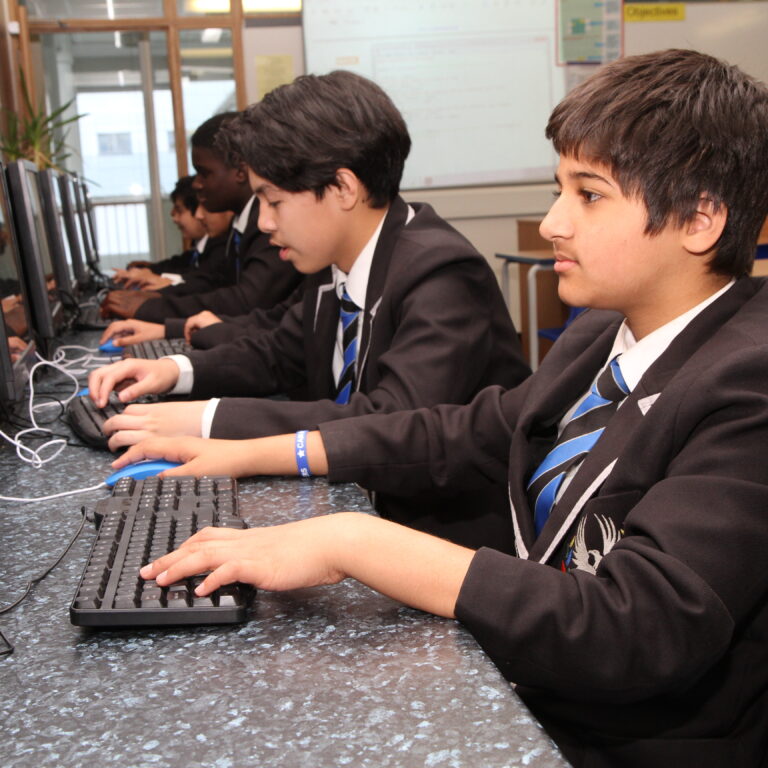The study of Computer Science is fast paced due to continual technological advances. Our department, made up of subject specialists, are at the forefront of the teaching of Computing Science. We are a lead school within the Network of Excellence in Computer Science Teaching, and we believe in offering an experience in the most up to date technologies and software platforms. There are two strands students can follow: academic or vocational.
At Ernest Bevin Academy, it is our intention to develop students’ Digital literacy, Information Technology (IT) and Communication skills as well provide a strong foundation in Computing theory and problem-solving skills. Our curriculum provides a platform on which to develop the skills our students need to live and work in a society where reliance on digital technologies is ever increasing. In doing so, they will be able to critically evaluate digital information and be safe online as well as use information management and communication tools confidently and proficiently.
Secondly, we aim to develop student’s ability to work with Information Technologies to create, analyse, implement and evaluate systems. We intend to provide our students with the knowledge and understanding of the computing concepts that underpins IT. It is our intention that students of Ernest Bevin Academy will have the confidence to take advantage of today’s Information and Computing age that will inevitably benefit their lives.
We offer a balanced and broad curriculum that focuses both on skills and knowledge acquisition through carefully selected units of work. The main skill that is developed is computational thinking and programming, which is revisited yearly to develop and embed these skills. We adopt a structured approach of PRIMM (Predict, Run, Investigate, Modify and Make) where feasible.
Knowledge topics are not revisited but rather built upon. The SOW is designed to identify links to prior topics which can be recapped. Students are encouraged to think of the bigger picture and make links including cross curricular links.
For students to take advantage of the Information and Computing age we ensure that they are exposed to all facets of skills and knowledge this requires.
We are a paperless department at Key Stage 3, hence pupils need to work with IT to collaborate and communicate via Teams and email and complete work using IT applications.
All work is accessed via Teams

